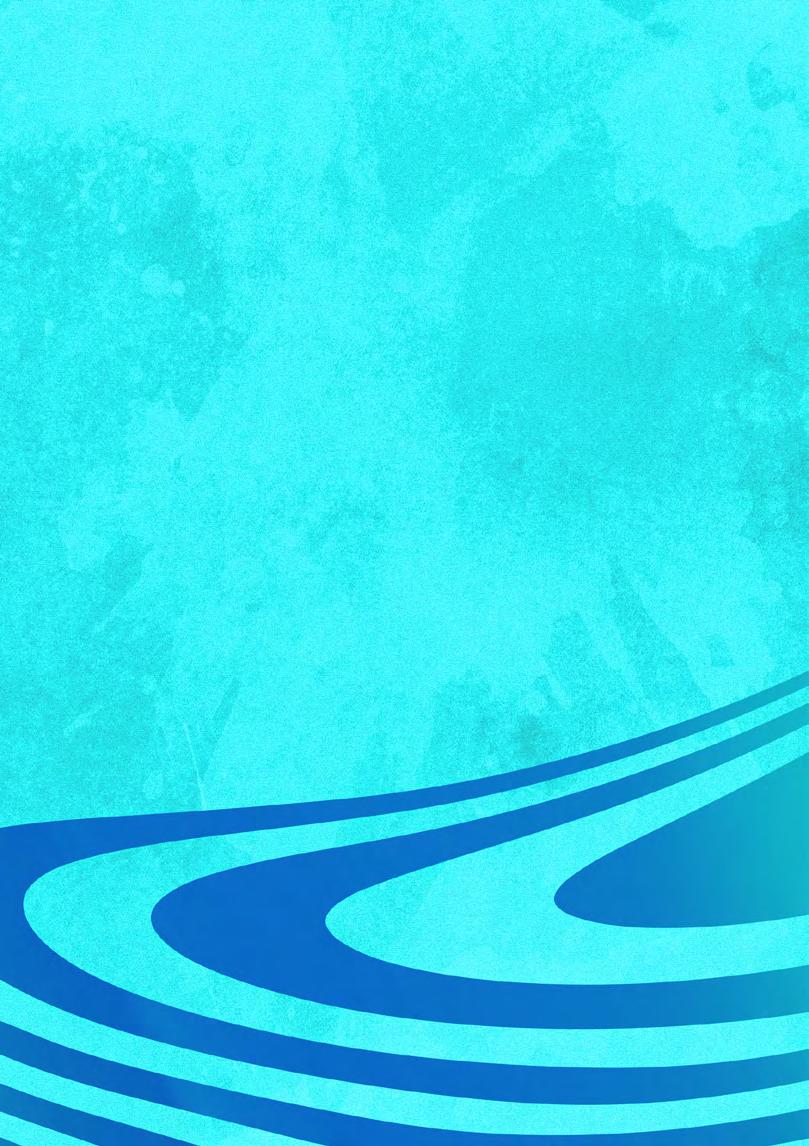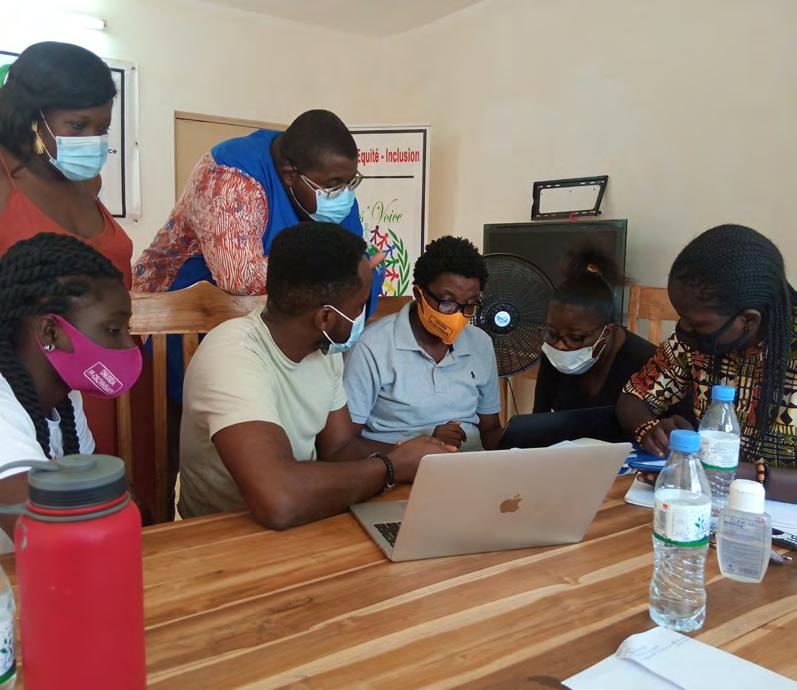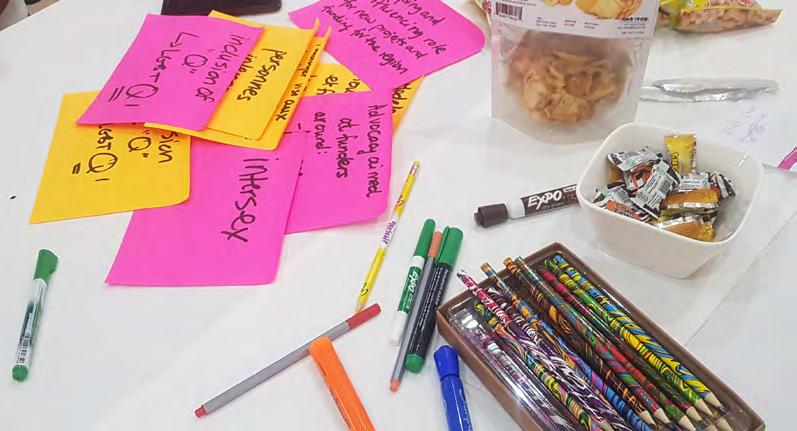
4 minute read
COMMUNICATIONS AND KNOWLEDGE MANAGEMENT
At ISDAO, we are committed to sharing regular updates on our work and our progress in the development of LGBTQI movements in West Africa, and also to giving voice to the communities we support and showing solidarity in times of crisis.

Advertisement
In March 2020, early on in the Covid-19 pandemic in the region, we published a message of solidarity from our Executive Director, B. Caroline Kouassiaman, recognizing the unique challenges that social distancing measures pose for LGBTQI+ organizing and the community. She also assured our grantee-partners of our commitment to flexibility and our availability to accompany communities in times of crisis.
Then, in April, our Director of Communications and Knowledge Management, Stéphane Simporé published a blog post titled ‘COVID19: Drawing
the fine line between prevention and stigma in
black ink’ where he reflected on the systemic stigma that occurs during pandemics under the guise of prevention, citing the different forms of discrimination and stigma directed at vulnerable people in times of crises like the covid-19 pandemic.
— Stéphane Simporé
But, in spite of the global health crisis, we are navigating to present other perspectives, to reflect on our engagement with the LGBTQI movement in West Africa.
While the crisis has reduced travel and gathering around the world, we wanted to reflect on how we have supported activists to occupy regional meeting spaces in our first newsletter issue of the year. This edition, titled ‘XAALAT’ means ‘thoughts’ or ‘reflections’ in the Wolof language, one of many languages spoken in Senegal, Gambia and part of the West of Mauritania in West Africa. In this edition, we reflected on our participation (and that of our partners) in key LGBT+/LBQ convenings including the 7th Changing Faces, Changing Spaces (CFCS) conference hosted by UHAI-EASHRI (Kenya), the First Global Feminist LBQ Women*’s Conference (South Africa), and the Key Populations Pre-Conference of the 20th ICASA (International Conference on AIDS and STIs in Africa) (Rwanda). These reflections made it clear that we must continue to prioritize the participation of LGBTQ West Africans in such key spaces, particularly those who are usually less represented, like Women, Trans* and Intersex persons, youths and Francophone activists
And later in the year, we published the second edition of our newsletter, Sankofa, titled ‘Breaking the Silence’ to explore the ways LGBTQI groups and organizations are using music and ICT (information and communication technology) to tell LGBTQI+ stories and amplify the voices of the LGBTQI communities in West Africa. We spotlighted groups and organizations doing innovative work across the region including Nigeria and Ghana and in several French-speaking countries.
JUSTICE AND LANGUAGE INCLUSION DURING OUR STRENGTHENING OF THE MOVEMENT WE PRACTICE OUR VALUES: ACCOUNTABILITY
We edited and published a blog post titled
‘The era of LBTQ feminist activism: Linguistic
justice!’ written by activist Emma Onekekou, coordinator of Emma LInfos. Emma’s piece, a call to action for linguistic justice, was inspired by the lack of translation from English at several key convenings for activists, which leaves people who do not speak English at a disadvantage, unable to actually engage.
She calls out: ‘In our struggles for justice and freedom, how can we make the voices of our most silent communities heard without giving them the opportunity to speak and be heard in the language in which they are comfortable?’
We published our 2019 Annual Report titled, ‘Moving with the Movement’. This was our first ever Annual Report, presenting an overview of the grantmaking and accompaniment work of LGBTQI activists and organizations in the West African region in 2019 as an activist-led fund for lesbian, gay, bisexual, trans, queer and intersex (LGBTQI) organizing in West Africa.
In a final newsletter in December, we shared our key successes, moments of celebrations and some important updates with our community.
— Emma Onekekou
HEARING FROM THE MOVEMENT
Towards the end of 2020, we launched two major initiatives to amplify the voices of the movement, and update our knowledge and documentation of LGBTQI+ organizing in West Africa, centering the diverse perspectives and experiences of activists and organizations on the ground.
The first initiative is the commissioning of a regional research that would provide a local situational analysis of LGBTIQ-led groups/ organizations and the new priorities of local activists in the region. The research report will present a current look at the funding landscape for LGBTQI activism in the different West African countries, identifying local and thematic trends and gaps; as well as present recommendations from the voices of West African LGBTQI communities to donors and other organizations providing technical support in the movement. This report will be published in 2022. The second initiative is the launch of a journal that will center and amplify the voices of west african LGBTQI activists on various themes and topics in the different issues. A public call for contributions to the first issue on the topic ‘Citizen engagement of the LGBTQI movement in social justice struggles in West Africa’ was released in December 2020. This issue will be released in 2021.









